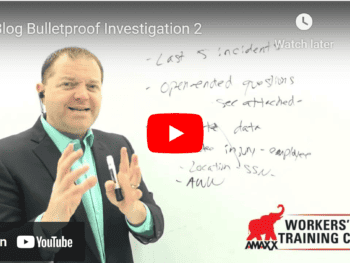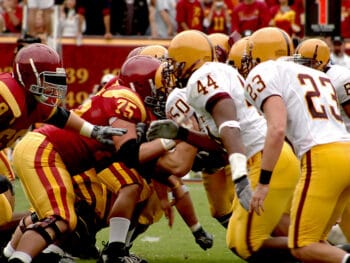A pair of worksites in Massachusetts recently came under fire from the Occupational Safety and Health Administration (OSHA)
Repeat violator Twin Pines Construction Inc. of Everett, Mass., was cited for willful, repeat and serious violations of workplace safety standards at worksites in Plymouth and Reading, Mass. The wood framing contractor faces a combined total of $336,200 in proposed fines following inspections by OSHA’s Braintree and Andover area offices begun in March.
The Plymouth inspection was initiated March 15 after a worker suffered broken ribs and leg injuries when an un-braced wooden roof truss system collapsed around him at a worksite located at 1 Shinglewood. The Reading inspection was opened the same day after OSHA received a complaint about possible safety hazards at the 1 Jacobs Way jobsite.
At the Plymouth worksite, OSHA found that the trusses were not adequately braced during their installation, exposing employees to being struck by them. The workers were also exposed to falls of up to 12 feet during the installation of the trusses. Inspectors identified an impalement hazard from uncovered anchor bolts and additional fall and struck-by hazards from a misused ladder and uninspected and untagged rigging. These conditions resulted in OSHA issuing Twin Pines two willful, two repeat and four serious citations with $196,200 in proposed fines. The repeat violations stem from similar hazards cited by OSHA in 2009 and 2011 at jobsites in Walpole, Mass. and Portsmouth, N.H.
OSHA found employees at the Reading worksite working without fall protection while framing exterior walls, making final deck attachments, constructing leading edges and receiving construction building materials. This lack of fall protection exposed them to falls of from 10 to 20 feet. As a result, OSHA issued two willful citations, with $140,000 in fines, to Twin Pines.
OSHA Says Recurring Problems Lead to Major Fines
“The large penalties proposed in these cases reflect the gravity and recurring nature of these hazards, and demonstrate this employer’s knowing, active and ongoing disregard for its workers’ safety,” said Marthe Kent, OSHA’s New England regional administrator. “Falls remain the number one killer in construction work. Employers who deliberately and repeatedly fail to supply and ensure the use of effective fall protection safeguards are repeatedly gambling with their workers’ lives.”
Twin Pines Construction Inc. has been placed in OSHA’s Severe Violator Enforcement Program, which mandates targeted follow-up inspections to ensure compliance with the law. OSHA’s SVEP focuses on recalcitrant employers that endanger workers by committing willful, repeat or failure-to-abate violations. Under the program, OSHA may inspect any of the employer’s facilities if it has reasonable grounds to believe there are similar violations.
A willful violation is one committed with intentional, knowing or voluntary disregard for the law’s requirements, or with plain indifference to worker safety and health. A serious violation occurs when there is substantial probability that death or serious physical harm could result from a hazard about which the employer knew or should have known. A repeat violation exists when an employer previously has been cited for the same or a similar violation of a standard, regulation, rule or order at any other facility in federal enforcement states within the last five years.
Twin Pines Construction Inc. was given 15 business days from receipt of its citations and proposed penalties to comply, meet informally with OSHA’s area director or contest the findings before the independent Occupational Safety and Health Review Commission.
Author Michael B. Stack, CPA, Director of Operations, Amaxx Risk Solutions, Inc. is an expert in employer communication systems and part of the Amaxx team helping companies reduce their workers compensation costs by 20% to 50%. He is a writer, speaker, and website publisher. www.reduceyourworkerscomp.com. Contact: mstack@reduceyourworkerscomp.com.
©2013 Amaxx Risk Solutions, Inc. All rights reserved under International Copyright Law.

























